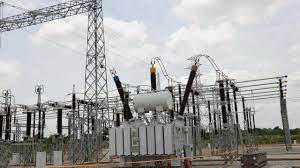…Increase local labour force to over 1,000

Lagos — New Hampshire Metering Services Limited, a subsidiary of New Hampshire Capital Limited has announced immediate plans to roll-out over 404,000 smart prepaid meters for Ikeja and Ibadan Electricity Distribution Companies under the Meter Asset Provider (MAP) scheme.
The General Manager, Operations of New Hampshire, Mr. Isaac Omoyeni, disclosed this recently in a chat with journalists in Lagos.
Mr. Omoyeni stated that the company is providing metering services in Ikorodu and Epe in Lagos State under the Ikeja DisCo franchise area, and also in Ilorin, Oyo, and Ogbomosho under the Ibadan DisCo franchise area.
He stated that the company entered into long term metering services contracts with both DisCos to finance, procure, install and manage prepaid meter assets and also ensure the provision of prompt metering services to electricity customers in both Discos.
He added that the deployment and installation of the meters are currently ongoing in these locations.
Mr. Omoyeni further stated that the meter roll-out programme by the company, which began in 2019, would soon enter its second phase, which is the mass metering of electricity customers within its coverage areas under a monthly payment amortisation plan.
To ensure the company has adequate stock of meter inventory for the mass metering programme, New Hampshire has partnered with several international meter-manufacturing companies to produce high quality smart prepaid meters. The company has also entered into meter purchase agreements with several local meter assemblers to purchase their assembled meters in line with the local content requirement of the MAP regulations.
In addition, Mr, Omoyeni stated that New Hampshire has developed proprietary technology systems and meter installation apps to manage the installation and commissioning of prepaid meters.
He said: “Our Meter Ordering Services (MOS) the system is our technology platform which was specifically designed to ensure the seamless end-to-end provision of metering services to electricity customers, from procurement to the installation and commissioning of the meters at the customer’s premises”.
Mr. Omoyeni informed that the company has deployed significant resources in terms of meter installers, appropriate meter installation equipment and operational vehicles to ensure efficient meter rollout operations.
He said that the company’s MAP operations currently provide direct employment for over 400-meter installers and field engineers who handle meter maintenance and repairs.
According to Mr. Omoyeni, “We would engage more than 1,000 trained meter installers when we fully commence our mass metering roll-out”.
“The company has been able to build capacity using local workforce and youths within our areas of operation and enjoy significant support from our host communities who are major beneficiaries of our local labor recruitment”, he said.
Mr. Omoyeni stated that while the MAP scheme has recorded significant success so far, there are several challenges facing the implementation of the scheme.
He said: “One of such challenges is the inability of MAPs to secure foreign exchange to import sufficient quantities of prepaid meters, as well as the 35% import levy charged on prepaid meters.”
He lamented that the inability of local meter manufacturers and meter assemblers to meet the 30% local content supply requirement as stipulated by the MAP Regulations has further constrained the company’s determination to accelerate the meter roll out the programme.
He thanked the Federal Government for granting a one-year waiver on the 35% import levy to allow MAPs to carry out bulk procurement and importation of prepaid meters to meet the demand of electricity customers.
However, he called for the immediate implementation of the Presidential waiver, as well as a clear framework, which MAPs can access the presidential waiver.
Asked if the waiver of the 35% import levy would negatively affect local production of prepaid meters, Mr. Omoyeni stated that the existing in-country capacity for local meter manufacturing and assembly of meter components is not sufficient to meet the huge demand for prepaid meters by electricity customers.
To buttress his point, he stated that local meter manufacturers who are also MAPs have not been able to meet their meter rollout commitments under the MAP scheme.
He contended that to meet the huge demand for prepaid meters, it would require a combination of importation of FBU prepaid meters to bridge the current deficit in local meter assembly capacity and massive investments in local meter assembly lines.
He lauded the Central Bank of Nigeria, CBN for the new meter-financing framework but asked that the CBN framework be aligned with the existing MAP regulations to achieve the objectives and goals of the MAP regulations and finally close the metering gap in the power sector.
He opined that the CBN’s plan to provide long term financing to local meter manufacturers would help local meter manufacturers expand their present manufacturing capacity, and in addition, encourage more investment in new meter manufacturing lines.
However, he advised that the objective of the CBN should be to promote true local meter manufacturing and not just the mere assembly of meter components imported from China.
He stated that, “it will interest the public to note that the importation of FBU prepaid meters is more beneficial to Nigeria in terms of revenue generation to government, than the importation of SKD meter components. Nigeria also does not benefit from any foreign exchange savings by importing meter components as there is no significant price difference between importing FBU prepaid meters and SKD meter components”.
Furthermore, Nigeria loses revenues on the lower import duty payments for SKD meter components, in addition to other fiscal incentives like tax waivers and other incentives provided to the local meter assemblers.
Mr. Omoyeni stated that the medium-term plan for New Hampshire is to develop its own indigenous smart meter technology, which would be manufactured in Nigeria for the Nigerian and African markets.
He stated that the company’s transition from a MAP to a true meter manufacturer is one of the benefits to the Nigerian economy from the MAP Regulations.



